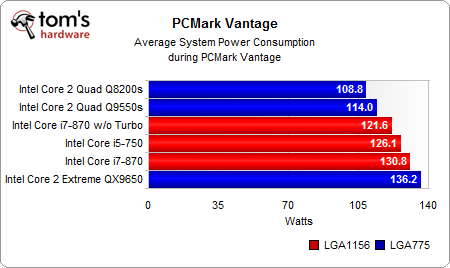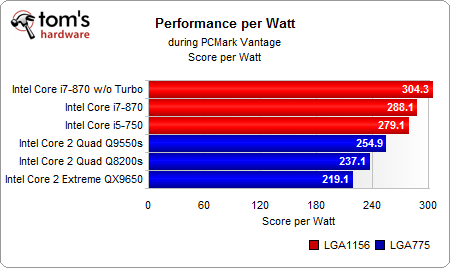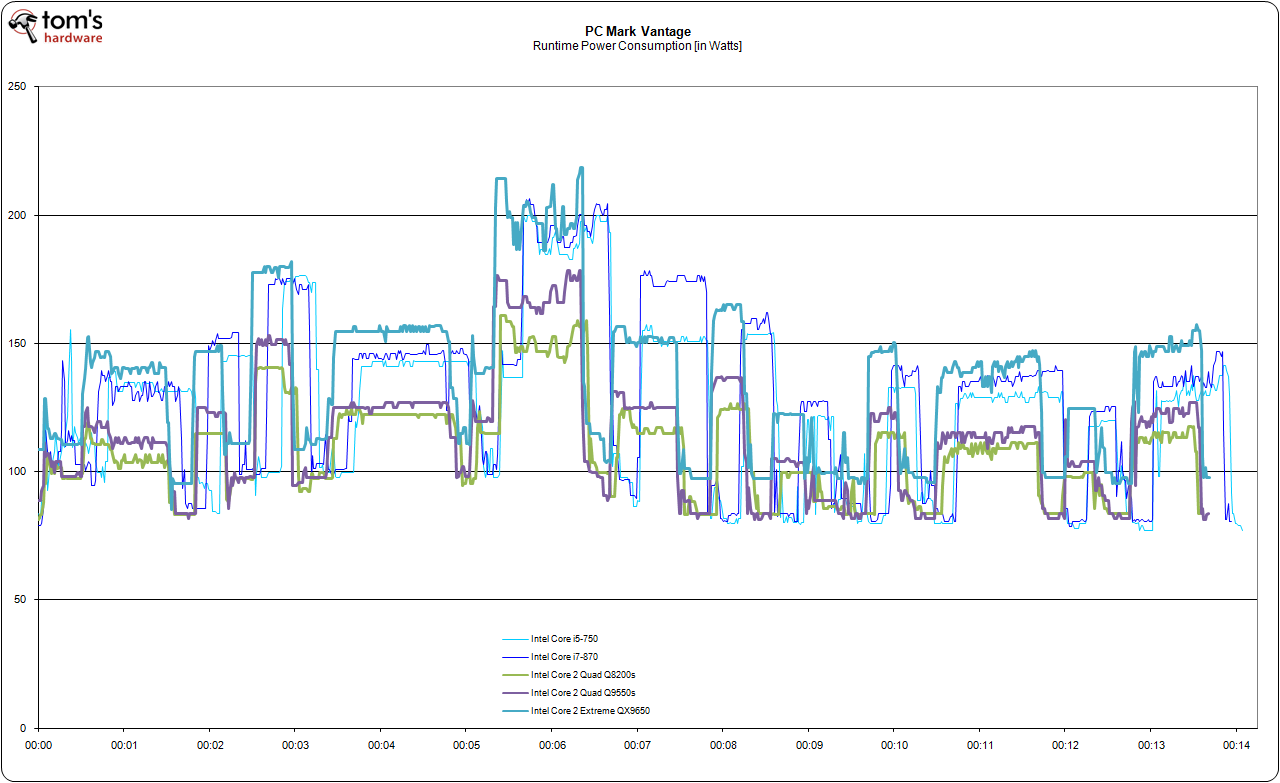Does Turbo Boost Help Or Hurt Core i5/i7's Power Efficiency?
Efficiency Comparison
Efficiency Comparison
First, we need the average power requirement during a PCMark Vantage run. We obtained this number by tracking power consumption throughout a full PCMark Vantage run and calculating the average. Once again,you can see that the new processors are roughly at the level of old Core 2 Quad systems, but you get much increased performance at the same average power consumption. Now let’s relate the PCMark Vantage score to the average power required to get a performance per watt result.
This is the real deal. Since the new Core i5/i7 generation on socket LGA 1156 delivers much better performance at similar peak power consumption and decreased idle power, the performance per watt delivered by the new platforms is greatly improved. However, there’s a surprise waiting: Turbo Boost does not help increase power efficiency. In fact, it decreases it, at least in the case of PCMark Vantage. Clearly, the Core i7-870 requires considerably more power with Turbo Boost enabled and hence has a rather negative impact on power efficiency. A Core i7-870 at 2.93 GHz may deliver less performance, but the power savings without Turbo Boost are significant enough to have a very noticeable efficiency benefit.
Our efficiency diagram shows power consumption for each of the system configurations at every point of the PCMark Vantage run.
Get Tom's Hardware's best news and in-depth reviews, straight to your inbox.


